
Climate Change and Migration Patterns: Findings at the Commune Level in Rural Provinces of Cambodia
Migration forces rural people to find more and better jobs, which is key in generating incomes to sustain livelihoods and ensure food security in times of environmental change. In addition to agricultural production, climate change affects health, water, and energy resources and causes migration and conflict. The impacts of climate change on me...
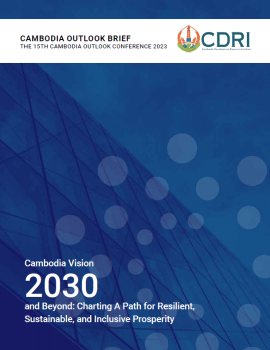
Cambodia Vision 2030 and Beyond: Charting A Path for Resilient, Sustainable, and Inclusive Prosperity
The 15th Annual Cambodia Outlook Conference held on 23 November 2023 brought together 500 influential decisionmakers in government, business, development, civil society, and higher education to discuss critical topics surrounding Cambodia’s development policies. The 2023 Conference drew upon CDRI’s on-going research study entitled “Cambodia Visi...
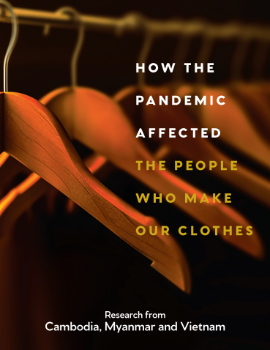
How the Pandemic Affected the People Who Make Our Clothes
The garment industry in developing countries suffered huge disruptions during and after the COVID-19 pandemic, with economic and social consequences that continue today. In addition to the direct effect of lockdowns, which decreased exports, the industry was severely impacted by its reliance on global imports of fabrics, raw materials and accessori...

Improving Access to Quality and Affordable Childcare Services: A win-win for Cambodian Children and Women
Why is childcare service important? Every child has the right to quality care. Public and private investment in childcare is globally considered a foundation to human capital development and economic growth. The World Bank Group defines human capital as three domains which develop throughout a person’s life: knowledge, skill, and health (T...
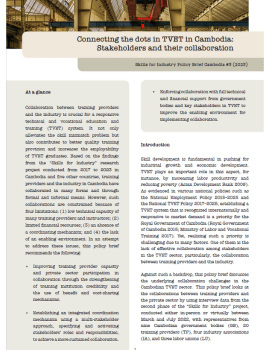
Connecting the Dots in TVET in Cambodia: Stakeholders and their Collaboration
Collaboration between training providers and the industry is crucial for a responsive technical and vocational education and training (TVET) system. It not only alleviates the skill mismatch problem but also contributes to better quality training provision and increases the employability of TVET graduates. Based on the findings from the “Skills for...
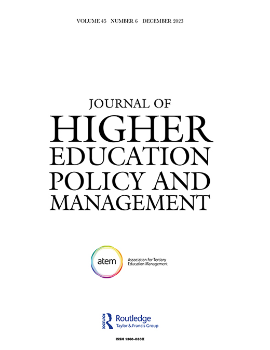
What Makes Academics (In)active in Higher Education Internationalisation: Evidence from Cambodia
This study explores the international engagement of academics and the factors influencing their engagement in internationalisation efforts in Cambodian universities. Data were gathered through online semi-structured interviews with academics and university administrators and later coded and analysed using reflexive thematic approach. The findings r...

Addressing All Learners’ Needs Through Gender-Responsive Pedagogy: The Case Of Cambodia
This blog post summarises key findings from recent research conducted by the Cambodia Development Resource Institute (CDRI) and Education Development Trust which investigates Cambodia’s journey toward gender-responsive education. Gender-Responsive Pedagogy, using FAWE’s (2018) framework, provides a lens for examining changes within Cambodian cl...
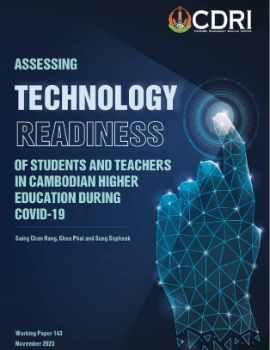
Assessing Technology Readiness of Students and Teachers in Cambodian Higher Education during COVID-19
This study examines the technology readiness of students and teachers in Cambodian higher education institutions (HEIs) during the COVID-19 pandemic, which forced a rapid shift to online learning. Using survey data from 370 teachers and 1,338 students across 22 HEIs, the study applies the Technology Readiness Index (TRI 2.0) to assess readiness lev...
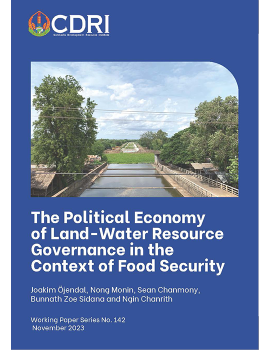
The Political Economy of Land-Water Resource Governance in the Context of Food Security in Cambodia
This study explores the political economy of land and water resource governance in Cambodia’s Tonle Sap floodplains, a region vital to national food security and rural livelihoods. Through desk research and stakeholder interviews, the report examines how governance structures, institutional frameworks, and actor dynamics shape resource management o...
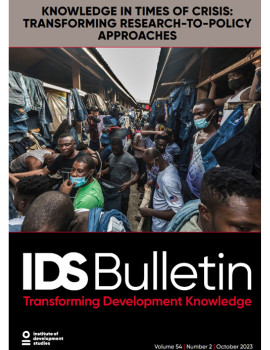
Lessons Learned from Mobilising Research for Impact During the Covid-19 Pandemic
During the Covid-19 pandemic, research organisations have strived to be resilient. This means navigating through the technical, operational, and political challenges to achieving successful research implementation. Particularly for local policy research thinktanks, the pandemic has made these challenges even more difficult to address. From the expe...
